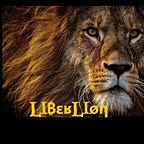The blockchain is a technology that allows the transfer of digital data with a very sophisticated encryption in a completely secure way.
For monetary use, (which is not the only one, but the first one), it would be like the ledger of a company where all the incoming and outgoing money is registered; in this case we are talking about a digital events book. This type of blockchain is this article about.
But in addition, it contributes with a tremendous novelty: this transfer does not require a centralized intermediary to identify and certify the information, but it is distributed in multiple independent nodes that register and validate it without the need of trust between them.
Once entered, the information cannot be deleted, only new records can be added, and it will not be legitimated unless most of them agree to do so.
Together with the level of security that this system provides against hacking, we find another enormous advantage: even if the network were to fall, if only one of these computers or nodes did not do so, the information would never be lost or the service, depending on the case, would continue to function.
An example that illustrates the importance of the distributed network is in social networks. With this system, blockchain would eliminate the centralization imposed by applications such as Facebook or Twitter when identifying ourselves or validating the origin of our messages, and the integrity of these would be guaranteed by the network of nodes.
Each of these blocks contains the encrypted information of a transaction on the network. Before, we made the analogy of the accounting book, where we noted, for example, that A went out and B came in. Well, blockchain behaves the same way, but it will be the network of distributed nodes that will have to certify that this data is true.
How do they do it?
Each block in the chain carries the transaction packet and two codes, one that indicates which block precedes it (except the origin block, of course), and another for the block that follows it, that is, they are interlinked or chained by what are called codes or hash pointers.
Now comes into play the concept of mining that makes the nodes, i.e. the process of validation of information. In this process of mining or checking, when there are two blocks that point to the same previous block, it simply wins the first to be decrypted by most of the nodes, i.e. most points of the network must agree to validate the information. Therefore, even though blockchain generates multiple block chains, the longest block chain will always be legitimized.
Using blockchain
Any type of information that needs to be preserved intact and must remain available can be stored in blockchain in a secure, decentralized and more economical way than through intermediaries. Furthermore, if this information is stored encrypted, its confidentiality can be guaranteed, since only those who have the encryption key can access it.
For example, health records could be unified and stored in blockchain. In this way, each patient’s medical history would be both secure and available to each authorized physician, regardless of the health center where the patient was treated. Even the pharmaceutical industry can use this technology to verify medications and avoid falsifications.
On the other hand, it would be very useful for managing digital goods and documents. Until now, the problem with digital is that everything is easy to copy, but blockchain allows the registration of purchases, deeds, documents or any type of digital good that cannot be falsified.
It can also revolutionize the Internet of Things (IoT) market, where the challenge lies in the millions of devices connected to the Internet that must be managed by supplier companies. In a few years, the centralized model will not support so many devices, not to mention that many of them are not secure enough. With blockchain the devices can communicate through the network in a direct, secure and reliable way, without intermediaries.
Blockchain allows to verify, validate, track and store all kinds of information, from digital certificates, democratic voting systems, logistics and messaging services, smart contracts and of course money and financial transactions.
For a chain of blocks to be considered as such, according to the purists it must be:
1. Open
The software that gives life to the chain of blocks is open source, so no one should pay licenses or royalties or ask permission to use it and improve it. Similarly, anyone can participate in the network by downloading a partial or total copy of the chain of blocks and acting according to the rules of consensus previously established.
2. No borders
It is no longer about nation states as trusted intermediaries, it is about a “redcentric” trust — according to a term coined by Andreas Antonopoulos, author and guru of bitcoin and blockchain. That is, it must be based on computing, on software code, on the accuracy of mathematics.
The network must have no intermediaries. The network is trust per se, taking into account that all information that passes through it is publicly verifiable through a block browser such as blockchain.info.
3. Transnational
The network works distributed in different geographical locations around the world in nodes that run an exact replica of the block chain, thus preserving the same state unanimously, the same truth that cannot be arbitrarily modified by any of the nodes without a general consensus.
4. Neutral
It does not serve the purposes of any State, organization or institution. Each member of the network — called a node — follows the rules of consensus neutrally, and if it does not follow them, it is simply expelled.
I appreciate your contribution to encourage my articles
₿itcoin
bc1qj8u9ccdn492f3nnuklq3ny3s5kssdye9fwtnks
₳da (Cardano)
addr1qxdlld4mux6gl38860w297lse59m0646v68x6sraw0asp85ml7mthcd53lzw057u5talpngtkl4t5e5wd4q86ulmqz0qskgn43
